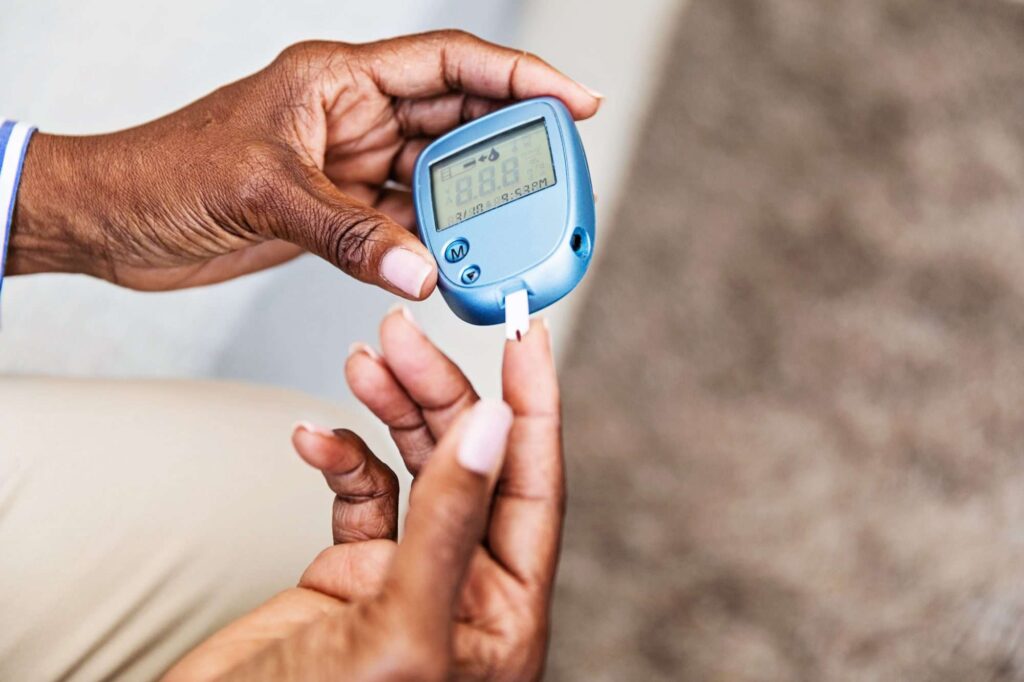Herbal supplements have been in use for centuries in an attempt to maintain balanced blood sugar, the natural way to regulate elevated blood sugar. These herbs are obtained from the plants and roots, and they possess properties unique to them in their ability to regulate glucose levels in the body. Whether you need to maintain healthy blood sugar or just want to take some natural remedies for health, these herbal supplements might be something you want to consider.
Top 7 Herbal Supplements Associated with Blood Sugar Management
1. Cinnamon
Cinnamon is probably one of the best-known herbs for blood sugar, as it increases the sensitivity to insulin through its compounds, cinnamaldehyde and cinnamate, which enhance the effect of glucose in absorptive cells. This does not allow rapid elevations in blood sugar after meals.
Though it is primarily available in capsule form, it can be easily added to diet if used as a ground cinnamon sprinkled over oatmeal or smoothies and sometimes as an additive in baked goods. The sweetness of the flavor of cinnamon is so high that it is frequently paired with both sweet and savory foods.
2. Fenugreek
Fenugreek is a cooking herb extensively used in the traditional food and medicine of the Middle East and India. Its soluble fiber can delay carbohydrate digestion and absorption, which causes a more stable sugar level in the blood after eating.
Fenugreek seeds consist of galactomannan, a flavonoid complex, which helps balance glucose levels. Fenugreek can also be consumed in the form of seed, powder, and capsules. This herb is easily assimilated in your diet when consumed with the help of fenugreek tea or when ground seeds are added to food items.
3. Berberine
Berberine is an active compound found in many plants, including goldenseal, Oregon grape, and barberry. Berberine has recently been explored because of its hypothesized mechanism on governing blood sugar levels. Berberine studies suggest benefits for enhancing insulin function, thereby facilitating enhanced glucose uptake into cells.
This is one of the major mechanisms of berberine as an activator of the so-called body’s metabolic master switch, important for energy balance and glucose metabolism. Berberine is supplement-based and has been associated with total support to metabolic health.
4. Gymnema Sylvestre
Gymnema sylvestre is a plant originating in India and has been used for decades in Ayurveda practice. It is called the “sugar destroyer” because some of the compounds in the plant may temporarily remove the sweetness receptor on the tongue, reducing an individual’s desire to take even sugar.
More importantly, Gymnema Sylvestre has also been related to increased glucose uptake by the cell and improved insulin function. The supplement can also restore beta cells in the pancreas that primarily produce insulin. Gymnema is readily available as capsules or powder, and it can be taken as an addition to smoothies or as a regular supplement as advised.
5. Bitter Melon
Bitter melon, also known as balsam pear, is a tropical fruit more commonly used in Asian and African cuisine. Though bitter in taste, bitter melon is valued for its possible abilities to keep blood sugar balance. These compounds inside bitter melon mimic the effects of insulin and could help glucose enter cells to be used for energy.
Bitter Melon is also taken as juice, tea, and capsules. This herb is also highly medicinal in terms of antioxidant activities. That being said, several people opt for this herb in case they need to resort to something natural to control glucose levels.
6. Aloe Vera
While aloe vera gel has been most famously used in dermatological procedures and wound healing, it has recently gained enormous attention as an herbal blood sugar regulator. The bioactive compounds in the composition of aloe vera gel, such as glucomannan and phytosterols, are thought to contribute to its hypoglycemic effects after meals.
Aloe vera supplements are available in gel, juice, or capsules. People commonly report that regular use facilitates balanced glucose levels. Drinking aloe vera juice or taking capsules before meals may improve digestion and decrease the absorption of sugar into the bloodstream.
7. Ginseng
Ginseng, particularly Panax ginseng, has been a medicinal herb in traditional Chinese medicine because of its purported health benefits, including assisting with the management of blood sugar. Ginseng has been proven to increase insulin sensitivity, which makes it easy for the body to consume more glucose.
Others have documented the research findings indicating that ginseng slows the absorption of carbohydrates. This basically means that blood sugar will not shoot up terribly high following the uptake of the food. Modern-day ginseng appears in various forms, including capsules, teas, and powders. This makes it very easy to fit a little ginseng into your daily life.
To learn more about incorporating herbal supplements into your routine and supporting your health, see more natural solutions that can fit into your lifestyle.
Conclusion
Perhaps incorporating herbal supplements into your daily program may not only naturally support balanced sugar levels but also be appreciatively received by the body. Different herbs have diverse benefits; for example, the use of cinnamon promotes the level of insulin sensitivity in the body, while berberine improves glucose metabolism.







